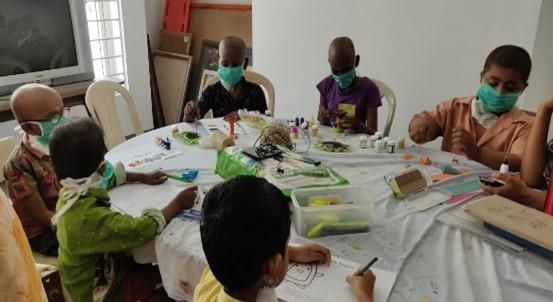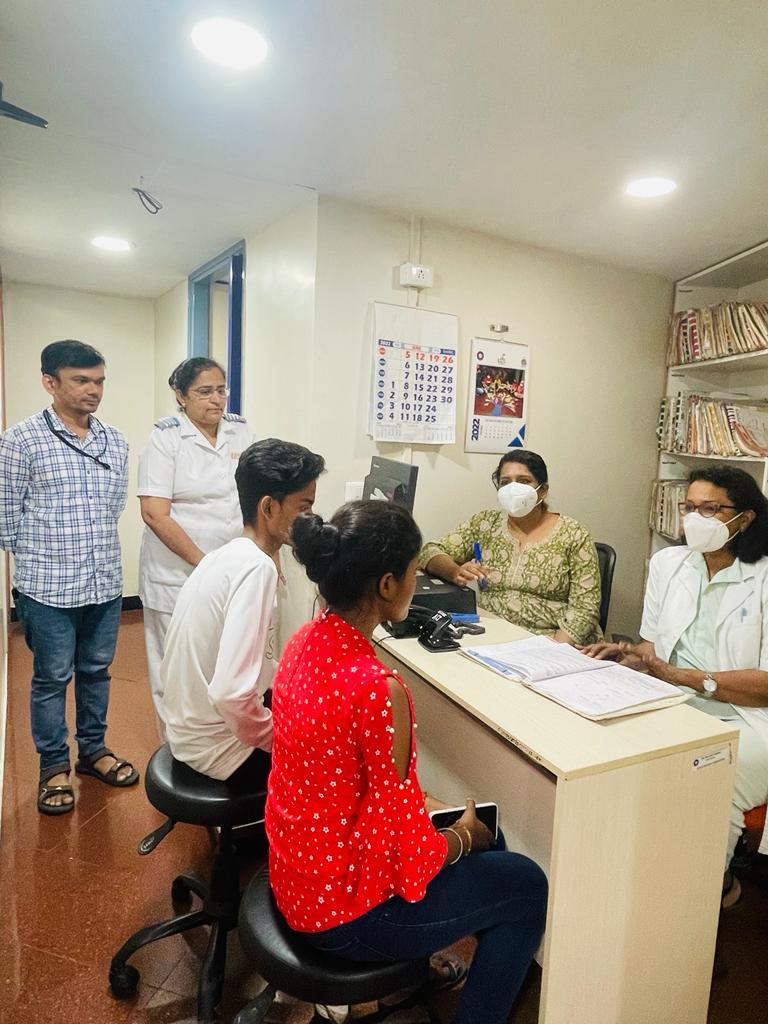Supporting Childhood Cancer Survivors and Their Caregivers: Observations From Cancer Centers in India
, by Sudha Sivaram, Maya Prasad, Venkataraman Radhakrishnan, Divya Rajkumar, Surendran Veeraiah
Sudha Sivaram, Program Director, Center for Global Health, National Cancer Institute
Maya Prasad, Professor, Pediatric Oncology, Tata Memorial Center, Mumbai, India
Venkataraman Radhakrishnan, Professor and Head, Medical Oncology, Cancer Institute (WIA), Adyar, Chennai, India
Divya Rajkumar, Indian Cancer Society, Chennai
Surendran Veeraiah, Professor and Head, Department of Psycho-Oncology, Cancer Institute (WIA), Adyar, Chennai, India
Childhood cancer awareness month is recognized every year in September by organizations all around the world. It is a time to take stock of the remarkable progress in treating childhood cancers while addressing the need to further improve advances around the globe. In high-income countries, where 10% of the world’s children live, 80% of children and adolescents with cancer survive after receiving timely treatment and appropriate needed supportive care. In low- and middle-income countries (LMICs), only 20% of children survive; understanding and addressing these disparities in survivorship is an important priority for global cancer researchers.
Seeking narrative experiences from cancer survivors and their caregivers and understanding the landscape of survivorship research in India was the goal of a Fulbright-Nehru Academic and Professional Excellence Fellowship received by one of the authors (Dr. Sudha Sivaram). In India, approximately 76,800 new pediatric cancer cases (ages 0-19) are diagnosed every year. While this represents less than 5% of total incident cancers in India, these patients face substantial challenges. These include anxiety and stress for the family during treatment, coordination of caregiving between a range of caregivers (parents, siblings, grandparents), managing disclosure to avoid stigma, coping with the side effects of treatment, and barriers (information, access, affordability) to follow-up after treatment. Observations from cancer centers and discussions with care providers and survivors provided a snapshot of existing programs to address these challenges and support survivors and their families.
Evidence suggests that in India the path from experiencing symptoms to seeking treatment is complicated and marked by uncertainty and delays. Factors such as low cancer health literacy and poor linkages between community-based practitioners and tertiary cancer centers result in delayed referrals and incorrect diagnoses. Further, primary care providers, traditional medicine practitioners, pharmacies, and community-based diagnostic laboratories are often the first line of contact for many. Exploring their role in referral and education as well as coordinating post-treatment surveillance with tertiary cancer centers has been suggested as a strategy to improve efficiencies in the care-seeking pathway of families with sick children.
Once treatment begins, children and families can avail of hospital-based peer support programs. The Cancer Institute (WIA), Adyar in Chennai’s SMILE program is an example. This is a weekly group meeting to help families find social and peer support during treatment. This also includes monthly support for survivors where play and other recreational activities are organized. These meetings also help build patient-physician relationships to improve treatment compliance, follow-up care, and outcomes.
After treatment is completed, follow-up and surveillance for late effects with ongoing support are essential for positive health outcomes. In a survey of pediatric and AYA survivors at Tata Memorial Center (TMC) in Mumbai, 13 and 33% respectively reported not coming to follow-up. A survey of these individuals suggested reasons for loss to follow-up including feeling well, low priority given for follow-up, and lack of time to make hospital visits. To address these barriers, holistic support interventions have been developed– where a multi-disciplinary team cares for the medical, psychological, and economic needs of the families. These have resulted in lower treatment abandonment and improved follow-up rates. The After Completion of Treatment (ACT) clinic at TMC is an example of a hospital-based multi-disciplinary team-led post-treatment care and support program for pediatric cancer survivors and their families. This clinic has registered over 3000 survivors; of which 60% follow up regularly. A similar ACT clinic is based at the Cancer Institute (WIA), Adyar in Chennai, where the country’s first pediatric oncology unit was established. Both cancer centers partner with non-government agencies like the Indian Cancer Society. This collaboration between cancer centers and non-government agencies is key to sustaining these services.
These observations from a few centers also allowed reflection more broadly on the role of research in improving the lives of survivors and their families. Experiences from India suggest that many programs to support childhood cancer survivors are developed based on practice-based evidence. Examples of services for childhood survivors include innovative service delivery partnerships to support surveillance and access to follow-up care, cancer treatment financing education, health information systems for survivor follow-up, multi-disciplinary teams to support survivor needs, community outreach for survivors, periodic opportunities to engage with other cancer survivors and meet oncologists and nurses, to name a few. Research collaborations to evaluate the implementation of these innovations might highlight unique approaches and opportunities in improving cancer survivorship worldwide.
Once cancer treatment is complete, survivors and families want to move on with their lives. Survivor-centered research in global settings can lead to the development of culturally and linguistically relevant interventions by considering lived experiences of families with cancer. Survivorship research might also serve as a catalyst to bring cancer control beyond the clinic and into communities – a first step in demystifying cancer and understanding survivor-centered research outcome measures.

